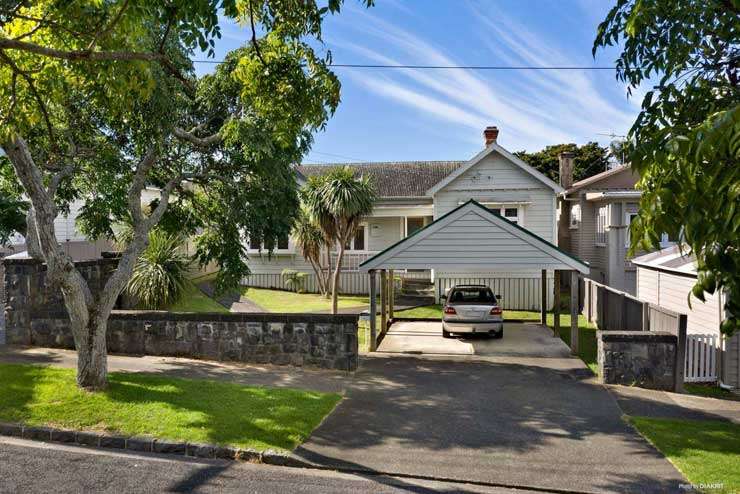The mood was subdued at New Zealand’s largest auction yesterday, as buyers and sellers came to terms with the Government’s shake-up of the housing market.
A woman who had come to watch the auctions said she had expected more bidding while a buyer who missed out on a home had harsh words when asked about the planned changes, announced by the Prime Minister on Tuesday.
READ MORE: Find out if your suburb is rising or falling
Looking to buy a home for his son, the unsuccessful buyer told OneRoof: “People in the room certainly look more cautious. They [the Government] are putting the knife into New Zealanders.”
Start your property search
The property the man was bidding on, a three-bedroom home at 29a Leonard Road, in Mt Wellington, sold for $820,000 - $20,000 above the reserve and $150,000 above the 2017 CV, after competitive bidding.
It was one of 15 homes that sold under the hammer at Barfoot and Thompson’s city auction rooms yesterday. Most of those that sold fetched between $1 million and $2 million, although some like 29a Leonard Road were in that first home buyer and investor sub-$1 million sweet spot.
The highest sale price of the day was for a four-bedroom home in Mt Eden, which sold for just over $3 million – almost double its 2017 CV and $110,000 above the reserve – but the remainder of the 42 properties on the block passed in, most without any bids.

The highlight of yesterday’s auctions: The $3.01 million sale of 30 Croydon Road, in Mount Eden. Photo / Supplied
The underbidder on 29a Leonard Road, who did not wish to be named, told OneRoof that he expected more properties to come on the market following the Government’s changes, which include an extension to the Bright Line test to 10 years for property investors and the removal interest deductibility on property investment mortgages.
Several commentators have said these changes will make it harder for landlords to hold onto their properties and that rents will increase as a result, and the underbidder agreed that renters and first homes would struggle most as a result of the shake-up.
However, the failure to build more homes was the root of the problem. “You would not have any of these issues now if we had 40,000 families in houses,” he said.











































































